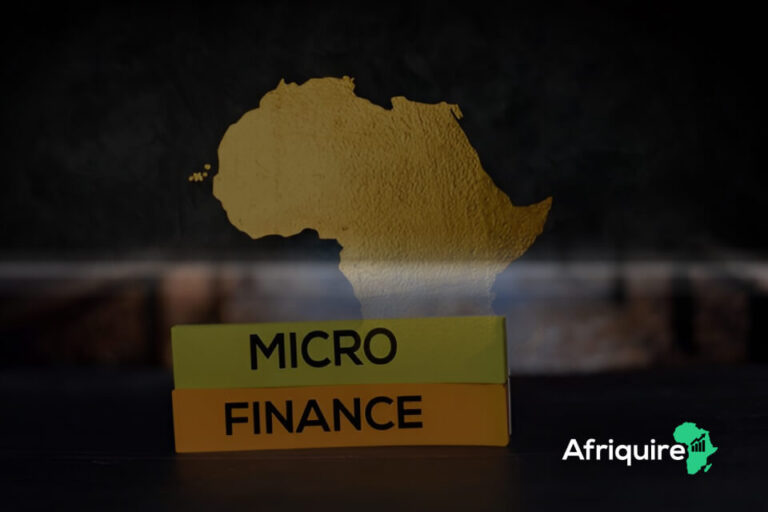Introduction
Africa’s youth population is its greatest asset, with millions of energetic and talented individuals ready to transform their communities. Yet, unemployment and lack of opportunities remain major barriers. Various funding opportunities have emerged to address this challenge, aimed at empowering Africa’s youth to become leaders and innovators. These programs, sponsored by governments, international organisations, and private foundations, offer financial support, mentorship, and training to help young people launch businesses, develop skills, and pursue sustainable projects.
With entrepreneurship rising across the continent, accessing these funds can be the key to unlocking a brighter future for young Africans. Whether you’re an aspiring entrepreneur, a creative, or someone passionate about social change, understanding how to tap into these funding sources is crucial. This article explores the top funding programs available, their requirements, and how they drive economic growth across Africa, empowering youth to thrive.
Introduction to Youth Empowerment in Africa
Youth empowerment is not just a buzzword; it’s a critical pillar for Africa’s socio-economic development. In a continent where over 60% of the population is under 25, empowering this demographic is the key to unlocking Africa’s potential. Unfortunately, African youth face significant hurdles, such as high unemployment rates, a lack of skills, and limited access to financial and social resources. These barriers hinder their ability to contribute meaningfully to the economy and society. The good news is that numerous funding opportunities are available to support youth initiatives to overcome these challenges.
Importance of Youth Empowerment for Africa’s Socio-Economic Development
Empowering young Africans through education, skills acquisition, and entrepreneurship is crucial for reducing poverty, driving innovation, and fostering sustainable development across the continent. Youth who are given the right tools can create jobs for themselves and others, boosting economic growth and social cohesion. However, accessing the funding necessary to support youth initiatives remains a challenge, making it essential to explore the various sources available.
5 Types of Funding Sources
Funding sources come in various forms, each offering unique benefits. From government grants to private grants, youth empowerment can come from anywhere. Here are five sources for youth funding
- Government Programs and Initiatives
Many African governments have established programs to empower youth through grants, loans, and entrepreneurship initiatives. These efforts focus on reducing unemployment, fostering skills development, and encouraging innovation to promote long-term socio-economic stability. Government-backed funding opportunities for youth empowerment in Africa are designed to support young entrepreneurs, helping them turn their ideas into successful businesses. By providing financial aid, training, and mentorship, these programs aim to create a new generation of leaders capable of driving economic growth and societal change.
- NGO and Nonprofit Sector Support
Local and international NGOs are crucial in supporting youth empowerment projects across Africa. Organisations like the MasterCard Foundation, Oxfam, and others have been at the forefront of offering grants, training, and mentorship programs that equip young people with the skills and resources needed to succeed. These NGOs provide invaluable funding opportunities for youth empowerment in Africa, enabling young entrepreneurs to start businesses, pursue education, and contribute positively to their communities, ultimately driving long-term economic and social development across the continent.
- Private Sector and Corporate Social Responsibility (CSR) Initiatives
Private companies play a significant role in funding youth-focused initiatives through Corporate Social Responsibility (CSR) programs. These initiatives align with the companies’ corporate goals, offering financial support and training and mentorship opportunities. Through CSR, businesses invest in the growth and development of young entrepreneurs, helping them gain the skills needed for success. These funding opportunities for youth empowerment in Africa help drive innovation, create jobs, and contribute to sustainable development while fostering strong partnerships between the private sector and local communities.
- International Organizations and Development Agencies
Global institutions like the UNDP, World Bank, and USAID are critical in providing substantial funding for African youth initiatives. These organisations address larger challenges, such as unemployment and lack of education, through region-wide programs. They support young entrepreneurs in building sustainable businesses by offering crucial funding opportunities for youth empowerment in Africa. However, many still face challenges in the ecosystem. These development agencies aim to bridge this gap, fostering economic growth and empowering the next generation of leaders.
- Alternative and Innovative Funding Models
Crowdfunding platforms, micro-lending, and impact investing are innovative funding models gaining popularity. These models offer youth a chance to raise funds from a larger pool of supporters without going through traditional channels.

Government and NGO Grants for African Youth Initiatives
- Government-Led Youth Empowerment Programs
Several African governments have rolled out significant grant programs targeted at youth development. For example, Nigeria’s Youth Investment Fund aims to reduce unemployment by supporting entrepreneurial ventures. Similarly, South Africa’s NYDA (National Youth Development Agency) provides grants and loans to help youth start businesses. These programs often come with eligibility criteria that applicants must meet, including age limits and the need for a sound business or project proposal.
- NGO and Nonprofit Sector Support
The role of NGOs in youth empowerment cannot be overstated. Nonprofits like the MasterCard Foundation, Oxfam, and others have developed targeted programs that equip young people with essential skills and resources for both personal and professional growth. These organizations often provide funding, mentorship, and training, helping to bridge the gap between opportunity and access. NGOs frequently collaborate with governments and private entities, creating a more extensive support network for youth. Through these partnerships, they offer holistic solutions to tackle unemployment and foster long-term socio-economic development.
- How to Apply for Government and NGO Grants
Securing government and NGO grant funding requires thorough research into available funding opportunities for youth empowerment. Applicants must understand the specific requirements and objectives of each program. A strong proposal is essential, outlining clear goals, accountability standards, and a solid plan for how the grant will be used to create a measurable impact. To secure SME funding in Africa, youth entrepreneurs should focus on demonstrating the potential of their projects to drive sustainable growth. Success often comes down to presenting a well-structured application that aligns with the grant provider’s vision and criteria.
Private Sector and International Funding for Youth Empowerment
The private sector and international organizations offer significant funding opportunities for youth empowerment in Africa. Many corporations, through their Corporate Social Responsibility (CSR) initiatives, provide grants, training, and mentorship to support young entrepreneurs. International organizations like the World Bank and USAID also play a key role in funding youth-focused projects, helping to address issues like unemployment and skill development. These opportunities are crucial for driving innovation and growth in Africa’s youth sector. Accessing these funding opportunities for youth empowerment can be a game-changer for young leaders seeking to build successful businesses.
- Private Sector and Corporate Social Responsibility (CSR) Initiatives
The private sector is increasingly important in supporting youth empowerment through Corporate Social Responsibility (CSR) initiatives. Organisations like the MTN Foundation and Coca-Cola Africa Foundation have invested in youth entrepreneurship, education, and skills development programs. By aligning your project with the objectives of these companies, you increase the likelihood of securing sponsorship or grants. However, challenges in accessing SME funding persist for many youth-led ventures. Exploring funding opportunities for youth empowerment through CSR initiatives can provide vital resources for overcoming these obstacles and driving sustainable growth.
- International Development Agencies and Funding Institutions
International organisations like UNDP, USAID, and the World Bank offer large-scale funding for youth empowerment initiatives across Africa, focusing on addressing critical issues such as unemployment and skill development. These organisations provide financial resources, mentorship, and training to empower young people. Regional efforts, such as the African Development Bank’s Jobs for Youth in Africa Initiative, further enhance support by targeting youth unemployment through strategic, impactful projects. These initiatives play a vital role in creating sustainable opportunities, helping to foster economic growth and development across the continent.
- Attracting Private Sector and International Investment
Attracting funding from the private sector and international organisations requires a well-crafted proposal that aligns with their specific goals and objectives. Developing strong networks and partnerships, particularly with key industry players, is crucial to increasing your chances of success. Additionally, highlighting how your project addresses pressing global challenges, such as youth unemployment or education gaps, can capture the attention of international funders. Demonstrating the potential for positive, long-term impact increases the likelihood of securing support for your initiative from global organisations.

4 Strategies for Securing and Managing Funding
When securing and managing funding requires clear strategies, you start by researching suitable funding opportunities and crafting a compelling proposal aligning with funders’ goals. After this, you build strong partnerships and demonstrate measurable impact.
- Securing Funding for Youth Empowerment Initiatives
Securing funding for youth empowerment initiatives begins with identifying the right funding opportunities for youth empowerment. However, crafting a compelling proposal is equally important. Your proposal should clearly articulate your project’s vision, potential impact, scalability, and long-term sustainability. It’s essential to address donor priorities, such as creating measurable impact and aligning with their objectives. Highlighting how your initiative meets these goals can significantly improve your chances of accessing Funding Opportunities for Youth Empowerment and securing the necessary resources for success.
- Financial Management for Youth Initiatives
Managing grant funds responsibly is crucial for the long-term success of any youth empowerment initiative. Effective budget planning, financial forecasting, and transparency in allocating and using funds are essential for maintaining donor confidence. Regular reporting and clear documentation demonstrate accountability, which is key to building trust with funders. Failing to manage funds properly can jeopardise future funding opportunities for youth empowerment and damage relationships with donors. Proper financial management not only ensures the project.
- Monitoring and Evaluation
Tracking the progress of your project is crucial for both the success of the initiative and maintaining funder relationships. Regular monitoring allows you to measure outcomes, ensure the project stays on track, and adjust as necessary. Reporting results to funders through narrative and financial reports is key to securing future funding.
- Sustainability and Growth Strategies
To ensure the long-term sustainability of youth empowerment projects, it’s important to diversify funding sources and scale successful programs. Building partnerships with other organizations and stakeholders can also help grow your project and ensure it continues to benefit youth for years to come.
Overcoming Challenges in Accessing and Managing Funding
Overcoming challenges in accessing and managing funding requires persistence and strategy. To secure funding, focus on crafting strong proposals that align with funders’ priorities. Once funds are secured, effective management is key—maintaining transparency, setting clear budgets, and carefully tracking expenses. Building trust through accountability improves future funding opportunities.
- Common Barriers to Accessing Funding
Many youth-led initiatives face common barriers to securing the necessary funding. A lack of awareness about available funding opportunities for youth empowerment often hinders access to vital resources. Additionally, stringent application criteria can pose challenges, making it difficult for organisations to qualify. Limited proposal writing and project management capacity further complicate the funding process, leaving many potential projects without the support to thrive and create meaningful impact in their communities.
- Best Practices for Overcoming Funding Challenges
Best practices for overcoming funding challenges include capacity building in grant writing, project management, and networking with industry experts. In enhancing these skills, organisations can develop more compelling proposals that resonate with potential funders. Additionally, leveraging digital platforms and social media can raise awareness about your initiative, attracting support from a wider audience. This approach is crucial to Securing SME funding in Africa and identifying funding opportunities for youth empowerment. Engaging with communities online also fosters connections that can lead to partnerships and resources essential for project success.

Success Stories and Case Studies
Many African youth empowerment projects have achieved remarkable success thanks to well-planned funding strategies. A prime example is Kenya’s M-PESA Foundation Academy, which has empowered thousands of students by offering scholarships and leadership training. This initiative illustrates how targeted funding can create substantial opportunities for youth, enabling them to develop skills that enhance their prospects. The academy’s success was made possible through strategic partnerships with local and international organisations, highlighting the importance of collaboration in securing financial support.
These organisations could attract the necessary resources by aligning their goals with the funders’ mission. Moreover, effectively managing these funds ensures the programs can sustain their impact over time. The success stories emerging from such projects underscore the critical role of securing the right funding in driving youth empowerment initiatives forward. Ultimately, investing in youth benefits individuals and contributes to African communities’ overall growth and development.
Lessons learned
Here are five lessons learned from the case study of Kenya’s M-PESA Foundation Academy and its successful youth empowerment initiatives:
1. Collaborating with local and international organisations can enhance resource availability, expertise, and credibility, making initiatives more successful.
2. Well-planned funding strategies that align with specific goals, such as scholarships and leadership training, can effectively address the unique needs of youth.
3. Effective funds management is crucial to ensure the longevity and impact of youth empowerment programs, enabling them to reach and benefit more individuals over time.
4. Providing programs that develop essential skills, such as leadership and entrepreneurship, empowers youth and prepares them for future opportunities.
5. Establishing clear objectives and measuring program impact helps funders and stakeholders demonstrate success, which can facilitate ongoing support and investment.
Frequently Asked Questions (FAQs)
1. What are the key sources of funding for youth empowerment in Africa?
Government programs, NGOs, private sector corporate social responsibility (CSR) initiatives, and international development agencies play crucial roles in youth empowerment. Together, they provide diverse funding opportunities, resources, and support to address challenges young people face in various communities.
2. How can I apply for a government or NGO grant?
To secure funding, research available opportunities thoroughly and prepare a compelling proposal. Ensure that your project aligns with the specific objectives of the grant, highlighting how your initiative can effectively address the funder’s priorities and create a meaningful impact in the community.
3. What are the main challenges in securing youth funding?
Challenges in accessing funding often stem from a lack of awareness about available opportunities, complex application processes that deter potential applicants, and limited capacity for proposal writing among organisations. These barriers can significantly hinder the growth of valuable youth empowerment initiatives.
4. How can I attract private sector or international investment for my project?
To secure funding, develop a proposal that aligns with corporate or global development goals. Additionally, focus on building strong networks with key industry players, as these connections can enhance your project’s visibility and increase the likelihood of obtaining necessary support and resources.
5. How do I ensure sustainability for my youth empowerment initiative?
To enhance sustainability, diversify funding sources and explore various avenues for support. Additionally, focus on scaling successful projects to reach a wider audience while building strong partnerships with stakeholders, which can provide valuable resources and expertise to strengthen your initiatives.
Conclusion
In conclusion, youth empowerment in Africa is essential for harnessing the continent’s vast potential and addressing critical socio-economic challenges. Young Africans can overcome barriers to entrepreneurship and innovation by leveraging diverse funding opportunities from government programs, NGOs, private sector CSR initiatives, and international organisations. The journey to secure funding requires strategic planning, compelling proposals, and effective financial management. Success stories from various initiatives demonstrate that youth can drive economic growth and social change in their communities with the right support.
As the youth population continues to grow, it becomes increasingly crucial to invest in their potential, ensuring a sustainable future for Africa. By embracing innovative funding models and fostering stakeholder collaboration, we can create an environment where young people can thrive, ultimately transforming Africa into a hub of creativity, leadership, and economic resilience. Empowering youth is not just an investment in individuals; it’s a commitment to building a brighter, more prosperous future for the entire continent.



